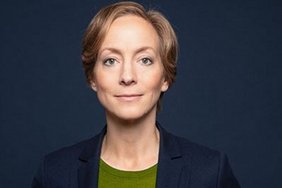The German Research Foundation is funding a new research group at Universität Hamburg—University of Excellence. The interdisciplinary group is looking at how states and societies in Europe are renegotiating security and protection in times of crisis.
Security is a key promise and essential value of democratic states, but in times of multiple, global crises it is increasingly at risk. At the same time, old certainties about Europe’s peace and security in the face of ongoing war in Ukraine, the rapid rise of authoritarian forces, and increasingly dire ecological crises are beginning to crumble.
The Promise of Security in Catastrophic Times (Promise), an interdisciplinary research group that will look at this issue, is one of 4 new research groups being funded by the German Research Foundation. In the first funding phase (2026–2030), researchers will look at how democratic governments and societies in Europe struggle to identify the priorities and limits of protection. In 8 subprojects, researchers will focus on changes in security promises and protection practices, ranging from state-based catastrophe protection and international humanitarian help to the self-organized protection of marginalized groups and the rejection of democratic security guarantees coming from the right.
“One of the goals of Promise is to gain new insight into how protection and security can be designed in the future, and how we as a society must organize ourselves to do so,” said Prof Dr. Ursula Schröder. The professor of political science with a focus on peace research and security policy at the Universität Hamburg and director of the Institute for Peace Research and Security Policy (IFSH) is the spokesperson for the new research group set to receive around €4.5 million in funding from the German Research Foundation.
Two of the eight subprojects are based at the IFSH. A team led by Prof. Dr. Ursula Schröder and Prof. Dr. Christine Hentschel (UHH) will investigate how European states and their societies, particularly in Sweden, France, and Germany, prepare for crises such as extreme weather events and the threat of war. Dr Holger Niemann's project will examine how the United Nations must set priorities in its humanitarian aid in times of crisis.
The Universität Hamburg issued a press release on this topic on 26 September 2025.
The press release and further information about the project can be found here.
